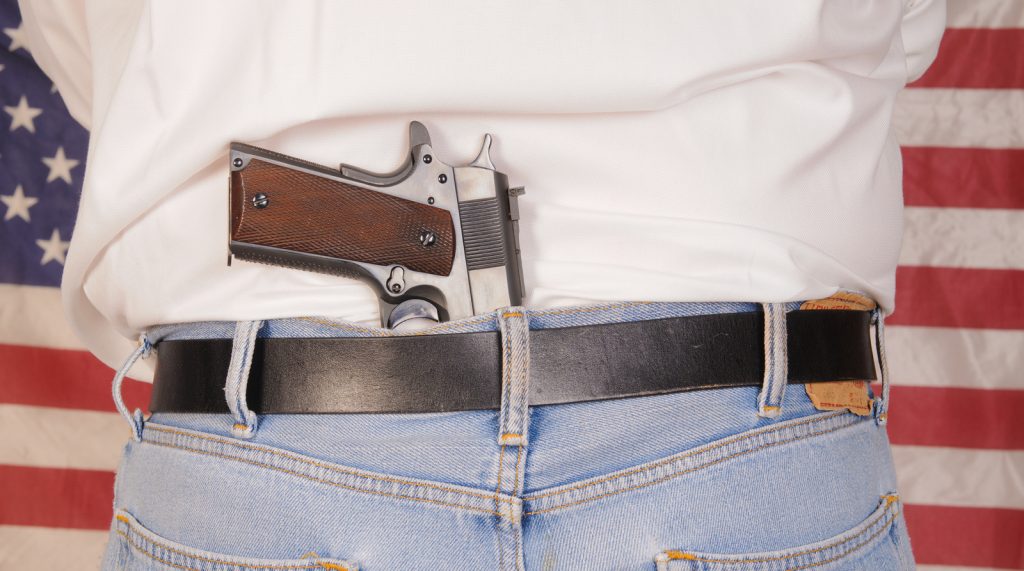Whether you’re a new gun owner or a long-time firearm enthusiast, understanding Indiana firearm laws is essential. Indiana has specific regulations surrounding gun ownership, carrying laws, and justifiable use of firearms. Missteps in following these laws could lead to serious legal consequences, including criminal charges.
This blog will provide you with a comprehensive guide to firearm possession and use in Indiana, from who can legally own a firearm to the state’s stance on concealed carry permits and gun charges.

Indiana Firearm Laws at a Glance
Indiana firearm laws are designed to balance the rights of responsible gun owners with public safety measures. Generally, residents have the right to buy and own firearms, but there are crucial state and federal restrictions to follow.
Here are the key points you need to know:
- Indiana generally permits individuals 18 years and older to possess firearms. However, additional laws regulate carrying handguns in public.
- A handgun permit or license is typically required for carrying in public spaces.
- Indiana’s “stand your ground” laws define when the use of deadly force is justified for self-defense.
Violations of these laws can lead to substantial penalties, including fines, imprisonment, and difficulty obtaining future gun permits.
Later in this post, we’ll discuss these rules in greater detail so you can better understand your rights and responsibilities.
Who Can Legally Possess a Firearm in Indiana?
Under Indiana gun laws, most residents over the age of 18 can legally possess a firearm. However, both state and federal laws impose restrictions on certain groups. The following individuals cannot possess firearms in Indiana:
- Convicted felons: Individuals convicted of serious criminal offenses (except for certain low-level felonies) are prohibited from owning or possessing firearms.
- Those with certain mental health conditions: If a person has been adjudicated as mentally incompetent or committed to a mental institution, they are typically barred from firearm possession.
- Domestic violence offenders: Individuals with domestic violence convictions—even misdemeanors—may lose their right to possess or purchase firearms.
- Illegal substance users: Unlawful users of controlled substances are not eligible to own or carry firearms.
- Anyone under a court order: This includes individuals subject to restraining orders related to stalking, harassment, or domestic violence.
If you fall into one of these restricted categories, attempting to possess a firearm may result in significant criminal charges under Indiana firearm laws.
Get Expert Criminal Defense in Indiana
Restrictions on Firearm Possession
While many individuals can legally own firearms in Indiana, there are restrictions on where and how those firearms can be carried or used. Being arrested with a handgun on or near these areas can result in aggravated factors.
Common Restrictions
- Public schools and daycares: Firearms are prohibited on school property, with limited exceptions like firearms in locked vehicles.
- Public buildings: Specific government buildings may restrict or prohibit firearms entirely.
- Private property: Business owners and private property owners have the right to prohibit firearms on their premises. Pay attention to posted signs!
Violating these restrictions could lead to a concealed firearm charge or other significant penalties, which we’ll cover later.
Carrying a Handgun in Indiana
Indiana’s concealed carry laws underwent significant changes in 2022. The state now operates under a “permitless carry law,” meaning eligible individuals do not need a license to carry a handgun in most cases. However, there are some nuances you should understand:
- Permitless Carry Rules: Residents who are not prohibited from firearm possession can legally carry a handgun without a permit.
- Concealed Firearm or Open Carry Permits (formerly): Though permits are no longer required for most carriers, you can still choose to obtain a handgun permit for reciprocity in other states or other personal reasons.
- Prohibited Individuals: Permitless carry does not apply to individuals banned under state or federal laws, like those with felony convictions or certain protective orders.
While permitless carry allows for more flexibility, ensure you fully understand the areas where carrying firearms is restricted, as violations can lead to criminal charges.
When Can You Use Deadly Force in Indiana?
Indiana’s laws regarding the use of deadly force, often referred to as the “Stand Your Ground” or “Castle Doctrine” law, allow individuals to protect themselves under certain circumstances. Here’s what you need to know:
- Self-Defense or Defense of Others: Indiana law permits the use of deadly force to defend oneself or others if you reasonably believe it is necessary to prevent serious bodily harm or death.
- Protection of Property: The law also extends to the defense of one’s home or vehicle. However, using deadly force must be proportional to the threat.
- Immediate Threat Required: Key to these laws is the concept of an immediate or imminent threat. Deadly force must not be used frivolously or when other options are available.
Although these laws protect responsible gun owners, situations involving the use of firearms are complex. Misjudging a scenario could still result in legal consequences.
Criminal Charges for Firearm Possession Violations
Violations of Indiana firearm laws can lead to serious legal repercussions. Common charges include:
- Possession by a prohibited person: A Class A misdemeanor or felony, depending on circumstances.
- Carrying without a permit (prior to permitless carry laws): Individuals who previously carried without a valid handgun permit faced criminal penalties.
- Firearm-related felonies: These include using a firearm in the commission of another crime, such as armed robbery or assault.
Penalties for these criminal charges vary widely but can include hefty fines, jail time, or permanent loss of firearm rights. If you’re facing such charges, knowing Indiana firearm laws and consulting with an experienced defense attorney is critical.
Protect Your Rights and Stay Compliant
Indiana firearm laws offer gun owners certain freedoms, but understanding the rules and restrictions is critical for responsible ownership. Whether you’re managing daily carry regulations, considering the use of deadly force, or ensuring compliance with public safety rules, staying informed can save you from unnecessary criminal charges or complications.
If you’re facing firearm-related charges or have questions about Indiana gun laws, don’t hesitate to reach out. Contact Attorney David E. Lewis for a free consultation today—we’re here to help you protect your rights and ensure your understanding of the law is as sharp as your skills with your firearm.
Get Started With a Free Case Review
Related Post: Do I Need a Permit to Carry a Handgun in Indiana?


